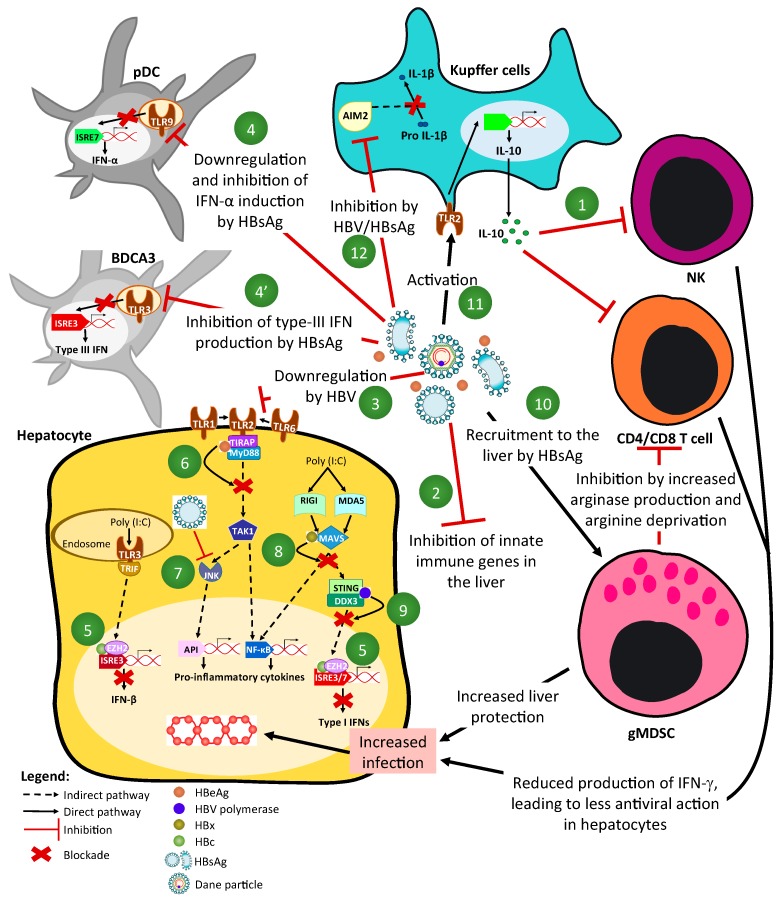Figure 2.
HBV modulation of innate immune sensors. (1) Interleukin-10 (IL-10) production can impair Natural Killer (NK) cell function, including the non-cytotoxic anti-HBV action of IFN-γ in infected hepatocytes; (2) HBV inhibit innate immune gene inductions in the liver according to HBeAg and HBsAg status; (3) TLR2 is down-regulated by HBV in hepatocytes, leading to a reduced production of pro-inflammatory cytokines/chemokines; (4) HBsAg down-regulates TLR9 in pDC, leading to the inhibition of IFN-α production and; (4’) HBsAg inhibits type-III IFN production upon TLR3 stimulation, hence preventing a relevant NK cell activation; (5) HBc can block the production of IFN upon dsRNA recognition receptor stimulation by the recruitment of EZH2 and immune promoters methylation; (6) HBeAg binds to TIRAP/MyD88 complex to inhibit the TLR2 signaling pathway; (7) HBsAg inhibits JNK pathway preventing IL-12 production; (8) HBx inhibits the dsRNA-mediated IFN response by interacting with host-factors (MAVS, TRIF, IRF3) and/or inducing their degradation by proteasome; (9) HBV polymerase inhibits the dsRNA-mediated IFN response by interfering with the STING and DDX3 function; (10) HBsAg can recruit and trigger the expansion of granulocytic Myeloid-Derived Suppressive Cells (gMDSC), which in turn, specifically inhibit CD4+ and CD8+ T-cell by the production of a large amount of arginase, leading to metabolic deprivation; (11) HBV can activate Kupffer cells (KCs) by the TLR2 pathway, leading to the production of IL-10 and the subsequent inhibition of the lymphocyte response; (12) HBsAg inhibits the AIM2-inflammasome and blocks the production of IL-1β, which has a strong antiviral effect on HBV replication in hepatocytes.

